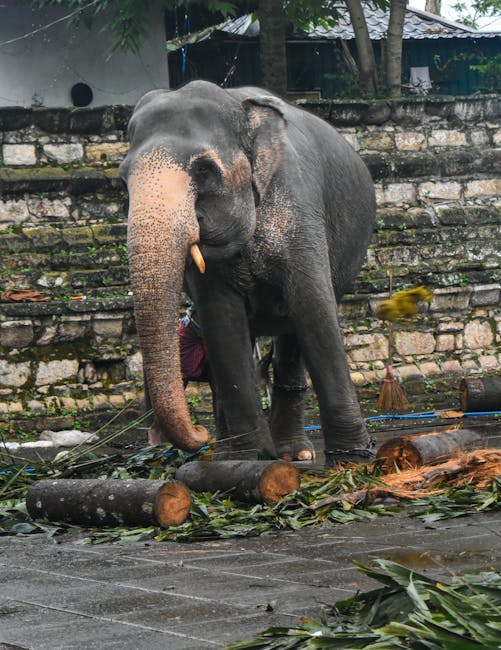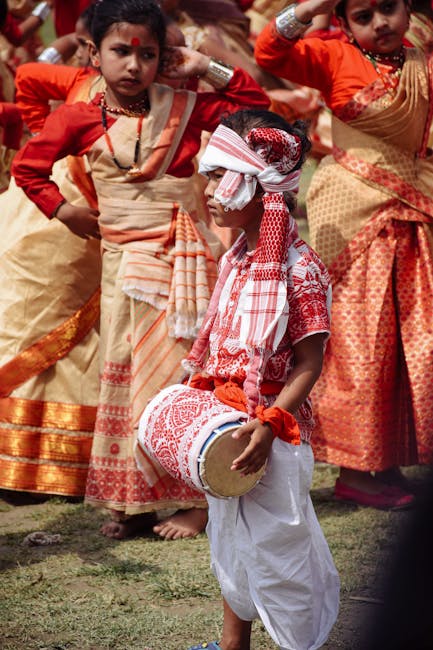-
Historical Context: Prime Minister Modi criticized the Congress for neglecting Chettur Sankaran Nair’s legacy.
-
Upcoming Film: A film, “Kesari Chapter 2”, based on the book “The Case That Shook the Empire,” is in production, highlighting Nair’s life.
-
Key Figure: Chettur Sankaran Nair was a prominent Indian jurist, statesman, and nationalist leader during British rule.
-
Early Life and Career: Born in 1857 in Kerala, he graduated in law and served as a judge, advocating for social reforms.
-
President of INC: He became the youngest president of the Indian National Congress in 1897.
-
Viceroy’s Executive Council: Served as the sole Indian member, advocating for constitutional reforms.
-
Jallianwala Bagh Protest: Resigned from the Viceroy’s Council in 1919 to protest the Jallianwala Bagh Massacre. This was a bold move against the British.
-
Book and Defamation: Authored “Gandhi and Anarchy,” criticizing both Gandhi and British policies. Sued by Michael O’Dwyer for defamation.
-
O’Dwyer v. Nair Trial: Lost the defamation case in London but refused to apologize, highlighting his unwavering principles and the biases of the British system.
-
Legacy: Nair’s actions, especially his resignation and defiance in the trial, amplified nationalist sentiments against the British.
Kuno to Gandhi Sagar
-
Relocation Approved: The Cheetah Project Steering Committee has approved relocating some cheetahs from Kuno National Park (KNP) to Gandhi Sagar Wildlife Sanctuary (GSWS) in Madhya Pradesh.
-
Project Goal: The move aims to establish a cheetah meta-population of 60-70 individuals across the Kuno-Gandhi Sagar landscape spanning Madhya Pradesh and Rajasthan.
-
GSWS Preparation: The Madhya Pradesh forest department has been preparing GSWS for over a year for cheetah introduction.
-
Initial Phase: The plan is to release 4-5 cheetahs into a fenced 64 sq km area in the western part of GSWS after removing leopards to prevent conflict.
-
Source of Cheetahs: It is yet to be decided whether the cheetahs relocated will be from the wild or enclosures within Kuno. As of now there are 26 cheetahs in Kuno, 17 are in wild and 9 in enclosures
-
Prey Augmentation: Concerns about prey availability at Gandhi Sagar are being addressed by introducing chital from other forests and maintaining herbivore enclosures for in-situ breeding. Current prey includes chinkara, chousingha, nilgai and chital.
-
Project Setbacks: Project Cheetah has faced setbacks, including the deaths of 8 adult cheetahs and 5 cubs at Kuno.
-
Committee Concerns: The committee expressed displeasure over a video of a forest department driver offering water to a cheetah and cubs, emphasizing the need for better training and adherence to SOPs. They also stressed adequate water supply during summer.
-
Cheetah Introduction Rationale: Cheetahs were reintroduced to India to restore ecological balance and re-establish their role as apex predators.
Rare Earth Magnets
-
China Suspends Exports: China has reportedly halted exports of critical rare earth magnets and related technology at several ports. This directly impacts industries reliant on these components.
-
Rare Earth Magnet Composition: These high-performance magnets are primarily made from rare earth elements like Neodymium (Nd), Samarium (Sm), and Dysprosium (Dy).
-
Wide Range of Applications: Rare earth magnets are vital for EVs, wind turbines, military systems (missile guidance), consumer electronics (smartphones), drones, and robotics. Their absence will affect these industries.
-
China’s Dominance: China controls over 80% of global rare earth refining capacity. This gives them significant leverage and allows them to use exports of these materials as leverage.
-
Supply Chain Concerns: The strategic importance of rare earth magnets makes supply chain security a concern, especially for countries like the United States that rely on imports. Due to China’s dominance these concerns can potentially affect them.
Yimkhiung
-
Protest Against Border Fencing: The Yimkhiung Tribal Council (YTC) recently led a major protest in Pungro Town, Nagaland, opposing the Indian government’s plan to fence the Indo-Myanmar border.
-
Abolition of Free Movement Regime (FMR): The tribe is also protesting the recent abolition of the Free Movement Regime (FMR), which previously allowed visa-free travel for border residents.
-
Tribe Divided by Border: The Yimkhiung are a Naga tribe with members living on both sides of the Indo-Myanmar border, primarily in Nagaland’s Kiphire district and adjacent areas in Myanmar.
-
“Imaginary Line”: The tribe views the border as an “imaginary line” that separates families and ancestral lands.
-
FMR Significance: The FMR had allowed border residents to travel into each other’s territory without a visa for social, economic, and cultural reasons.
-
Government Action: In February 2024, the Indian government announced the end of the FMR and plans to fence the Indo-Myanmar border.
-
Memorandum Submitted: Yimkhiung has submitted a memorandum for the reversal of the fencing plan.
-
Name Change: The Government of Nagaland officially changed the tribe’s name from “Yimchunger” to “Yimkhiung” in 2021.
Social Protection 2025
-
Why in News: The World Bank’s State of Social Protection Report 2025 reveals significant social protection gaps in low- and middle-income countries (LICs and MICs).
-
Massive Coverage Gaps: Nearly two billion people in LICs and MICs lack adequate social protection. 1.6 billion receive no social protection at all.
-
Regional Disparities: Sub-Saharan Africa is the most affected, with 70% lacking any social protection. In LICs, over 80% are uncovered or inadequately covered.
-
Inadequate Progress: Social protection coverage in LICs and MICs only rose from 41% to 51% between 2010 and 2022. The current pace is insufficient to meet SDG targets by 2030.
-
Funding Constraints: High-income countries spend significantly more on social protection than LICs (5.3 times more of GDP). Spending is often concentrated on formal workers, neglecting the poor.
-
External Shocks: Social protection systems are unprepared for climate change, conflict, and pandemics, potentially pushing millions into poverty.
-
India’s Coverage: India’s social protection coverage doubled from 24.4% in 2021 to 48.8% in 2024. Around 65% of the population is covered by at least one scheme.
-
Challenges in India: Ineffective welfare boards, limited fiscal capacity (spending 5% of GDP), technological/administrative hurdles (eShram registration), delayed ratification of ILO conventions, and demographic shifts (aging population).
-
Global Recommendations: Expand universal basic income, reform regressive subsidies, invest in climate-resilient systems, and address life-cycle risks.
-
Need for Reforms: The report underscores the urgent need for targeted reforms and investments to strengthen social protection systems and ensure inclusive development, poverty reduction efforts and reduce inequality.
Repo Rate
-
Repo Rate Cut: The Reserve Bank of India (RBI) has reduced the repo rate by 25 basis points to 6.00% as of April 15, 2025.
-
RBI’s Tool: The repo rate is the interest rate at which the RBI lends money to commercial banks against government securities. It’s a key tool for managing liquidity and controlling inflation.
-
Lower Borrowing Costs for Banks: The repo rate cut lowers borrowing costs for commercial banks.
-
Impact on FD Rates: Banks are likely to reduce Fixed Deposit (FD) interest rates in response to the repo rate cut. Existing FDs remain unaffected till maturity.
-
Increased Credit Flow: Lower interest rates are expected to encourage borrowing by businesses and consumers, boosting investment and consumption.
-
Boost to Key Sectors: Sectors like real estate and infrastructure may benefit from more affordable financing.
-
Support Against Global Uncertainties: The RBI’s move aims to support the Indian economy amid global challenges, such as U.S. tariffs.
-
Current Reverse Repo Rate: The current reverse repo rate is 3.35% (as of April 15, 2025).
Sillahalla Hydro Project
- Increased Opposition (April 2025): Local farmers, tribal groups, and environmentalists intensified protests against the Sillahalla Pumped Storage Hydroelectric Project (SPSHEP), submitting petitions to the Tamil Nadu government.
- Project Aim: The SPSHEP aims to generate 1,000 MW of electricity to meet Tamil Nadu’s peak power demand and support renewable energy integration.
- Location & Features: Located in the Nilgiris district, the project involves constructing two dams, tunnels, an underground powerhouse, and surface storage points.
- Environmental Concerns: The project threatens to submerge farmland and forest land, affecting approximately 3,000 farmers. Joint land ownership complicates compensation.
- Public Response: Local communities have raised concerns regarding environmental impact and the loss of livelihoods.
- Spiritual Protest: Residents from affected villages prayed to Lord Murugan, the Nilgiris’ guardian deity, to protect the environment and prevent the project’s implementation.
- “Sillahalla Kaavadi”: A special kaavadi was offered to Lord Murugan, symbolizing both cultural faith and environmental concern.
- Activist Involvement: Activists like M. Sivalingam (Sillahalla Protection Committee) and lawyer K. Vijayan participated in the spiritual protest.
- Need for divine intervention: Villagers now turn to the divine, believing that Lord Murugan alone can protect the hills, forests and future.
Indian Prawn Farming
-
India’s Prawn Aquaculture Significance: India is the world’s third-largest aquaculture producer and second-largest in prawn production, contributing significantly to nutrition and the economy.
-
Growth: Prawn production in India has seen a 17% annual growth rate, driven by domestic and export demand.
-
Demand: Prawns, especially black tiger prawns (Penaeus monodon), are in high demand due to their high protein and low fat content. Optimal salinity for prawn cultivation is 10-25 grams/litre.
-
Leading Producers: Andhra Pradesh is the largest prawn producer, followed by West Bengal, Tamil Nadu, Odisha, and Gujarat.
-
Innovative Farming Practices: Farmers are adopting innovative practices like using smaller ponds to improve yields and reduce the risk of economic losses from pathogen outbreaks.
-
Disease Challenges: Bacterial infections (e.g., Vibrio harveyi) and viral outbreaks (e.g., white spot syndrome) can cause significant yield losses (up to 25% annually).
-
Disease Control Measures:
- Plastic nets to prevent crow-borne contamination.
- Probiotics (Bacillus bacteria) to outcompete harmful pathogens.
- ICAR-CIBA’s development of ‘specific pathogen free’ broodstock.
- Phage therapy using bacteriophages to target Vibrio bacteria.
-
Brackish Water Sourcing: Brackish groundwater is often blended with freshwater in coastal Andhra Pradesh. In other regions such as the Midnapore district of West Bengal, seawater is brought into the ponds during high tide.
-
Pond Management: Typical ponds are emptied and dried after 4-6 month cycles for preparation of the next harvest.
Rongali Bihu
-
Celebration: Rongali Bihu (Bohag Bihu) will be celebrated from April 14th to 20th, marking the Assamese New Year.
-
Significance: It marks the start of the Assamese New Year according to the Hindu solar calendar, as well as the beginning of the harvesting/sowing season. It also signifies the onset of spring.
-
Harvest Festival: It is primarily a harvest festival where prayers are offered for a prosperous agricultural season.
-
“Rong” Meaning: The term “Rong” signifies joy, reflecting the festival’s spirit.
-
Bihu Dance: The Bihu dance is a vibrant part of the celebrations, accompanied by folk music and traditional instruments.
-
Other Bihus: Rongali Bihu is the most important of three Bihus, the other two being Kati Bihu (October, mid-crop) and Magh Bihu (January, end of harvest).
-
Timing Relevance: Celebrated in April (Bohag), it symbolizes the start of the sowing season.
Gendered Climate Risks
- Disproportionate Impact: Climate change intensifies existing gender inequalities, disproportionately affecting women, especially in rural and climate-vulnerable communities in India.
- Beijing Report Gap: The Beijing India Report 2024 lacks a robust climate-gender lens, missing a critical intersection.
- Increased Burden: Climate-induced water scarcity, extreme heat, and erratic rainfall increase women’s workload (water collection, caregiving), reduce agricultural productivity, and limit income-generating opportunities. Women spend 150 million workdays collecting water each year. Women’s unpaid workload could reach 8.3 hours/day by 2050.
- Health Risks: Climate change exacerbates malnutrition, anemia (52.2% of pregnant women affected), maternal and neonatal health issues, and increases the risk of domestic violence (potential 23.5% rise by 2090).
- Economic Vulnerability: Women are overrepresented in climate-sensitive sectors like agriculture, leading to job losses and financial insecurity. Climate change could push 16 million more women than men into poverty by 2050.
- Migration and Displacement: Rural women are highly vulnerable to climate-induced migration, facing adverse health outcomes and increased risks of exploitation and gender-based violence.
- Traditional Knowledge: Women possess valuable knowledge of sustainable agriculture and local resource management, crucial for food security and ecosystem preservation.
- Women-Led Initiatives: Women are at the forefront of climate adaptation efforts, from sustainable farming to disaster response and community-based natural resource management.
- Policy Recommendations: Mainstream gender in climate frameworks (NAPCC, SAPCC), prioritize climate-responsive budgeting, establish local support systems, promote skilling and livelihood diversification, and enhance women’s access to climate information.
- Need to Integrate: Need for gender responsive National Action Plan on Climate Change (NAPCC), State Action Plan on Climate Change (SAPCC) and a percolation to the grass-root level needs to be ensured.
- Private sector participation is important









